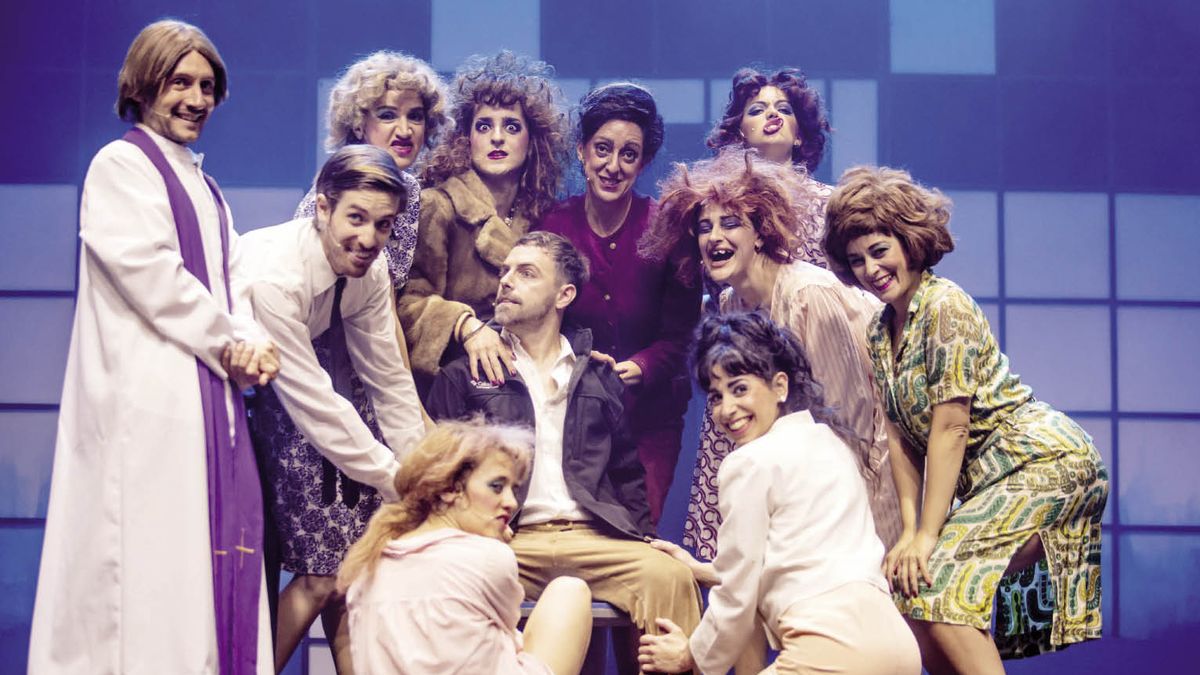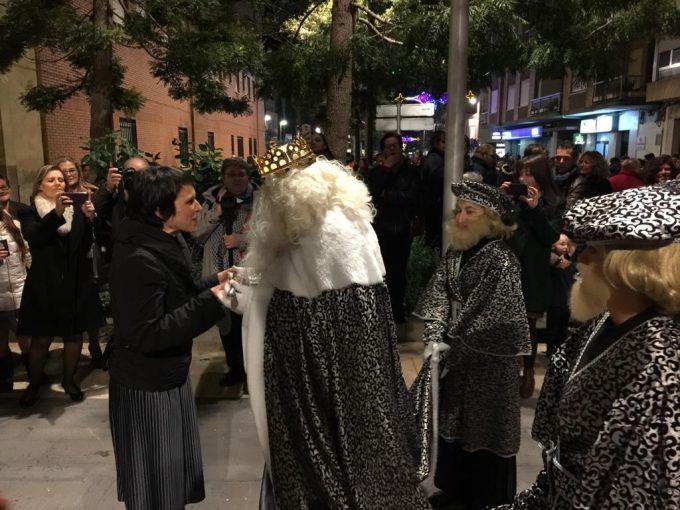Juan Delgado: It’s a cocktail of classic Broadway musicals. Together with Mariano Condoluci in 2013 we began to write it as a thesis and each scene and song refers to classics such as ¨La tentita del horror¨, ¨Urine town¨, ¨Wicked¨, ¨Rent¨, ¨Chicago¨ and so many. For example, when the mayor of the town speaks from the heights to all the inhabitants, it generates a solemn moment that is in ¨Wicked¨ and others. There are little tricks on how to go from text to song. In ¨Rent¨ there is a scene where one of the characters faints, enters a dream and the song appears, here we have something similar.
Q .: Did you take the idea of the disease from those?
J.M.D.: This musical arises as a thesis of the Julio Bocca Foundation and we had to comply with certain guidelines. When thinking about where to place it, as an arbitrary place we chose a hospital, and we came up with a disease that turned into a pandemic that caused the entire system to overflow. We never imagined that years later the real pandemic would arrive.
Q .: How was the work resignified when it was retaken after the quarantine and still in a pandemic?
J.M.D.: When we went back to rehearsing after a year and a half unemployed, listening to those texts again was strong. We did not have to modify or add jokes, everything resonated: political power, the health business, the ignorance of the people without tools to face the situation. We do not take a position either, for example, the anti-vaccines. Far from wanting to teach or leave a message, the work is a reflection of all the miseries that come to light. Each one tries to save himself.
P .: And the love story is not lacking …
J.M.D.: There are love conflicts that get entangled with the political question. The mayor is in love with the doctor, who in turn gives her psychiatric mediation and that gives her a higher status, he ends up being the one who manages her mood. In turn, the mayor’s daughter, also in love with the doctor, catches the disease, which occurs in love and power entanglements. A tug of war.
Q .: What differences did you find between the tour of the independent theater and this landing in the commercial?
J.M.D.: We live it in the same way, I think the main difference will be that the Neruda room will bring more crowds. In the Galpón de Guevara we were full for 4 years on Mondays, with 150 seats, now there are 500. Our desire to do the work is the same, the way we work with each other and with the people in the room as well. We hope to continue in the same spirit. We are still a cooperative, in economic terms it is the same, 70 for us and 30 for the room, except that if more people come we will charge more. And that’s good because we have a lot of technical investment, 12 actors miked and 7 musicians on stage.
Q .: How do you see the musical scene locally?
J.M.D.: That system in which the North Americans came to check that the local adaptation was perfect no longer works, the local music scene has to turn towards a more proper side, with a more Argentine air, that reflects our reality and that generates identification in the public. I was doing ¨A chorus line¨ with the permission to argentinize it a bit, to bring it closer together, and thanks to that it worked. We were there for three years and we were able to return post-pandemic.
P .: However, many times the argentinization of a Broadway classic impoverishes it and even makes it more distant.
J. M.D.: It depends on how it is done. If Argentinism gets in without too much justification, it is off the hook. The work that comes from another era and culture can come closer but you have to avoid putting the easy joke, you have to do a more in-depth work.
–


